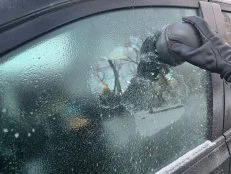Is Your Family Ready for a Big Storm?
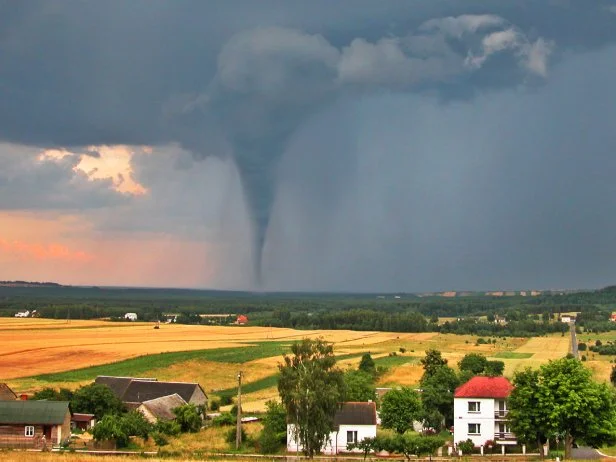
Despite good warning systems for detecting natural disasters, they still occur and surprise homeowners, or become far worse than expected. Good preparedness can mean the difference between being safe and comfortably waiting out the event at home, versus being miserable—cold, hungry and in danger.
Here are essentials the Federal government's FEMA site and Red Cross recommend having with you:
Disaster Kit Essentials
Set these together in a designated go-to spot that everyone in the family knows about:
- One gallon of water per person per day for at least three days, replace it every six months to be safe
- Battery-powered radio with extra batteries
- Flashlight with extra batteries
- Whistle or loud horn to signal for help
- Dust mask to filter contaminated air, plastic sheeting, duct tape
- Moist towelettes in little packages
- Garbage bags with plastic ties
- Wrench or pliers to turn off utilities
- Cell phone with chargers, inverter, or solar charger
- Chlorine bleach and medicine dropper for use as a disinfectant
- Fire extinguisher and matches in a waterproof container
- Portable fans for hot weather
- $100 or so in cash
First Aid Supplies
This separate kit recommended by the Red Cross will aid a family of four; adjust essentials for your family size:
- 2 absorbent compress dressings, 5 by 9 inches
- 25 adhesive bandages in assorted sizes
- 1 adhesive cloth tape, 10 yards by 1 inch
- 5 antibiotic ointment packets
- 5 antiseptic wipe packets
- 2 packets of aspirin
- 1 blanket
- 1 breathing barrier with a one-way valve
- 1 instant cold compress
- 2 pair of nonlatex gloves, large size
- 2 hydrocortisone ointment packets, approximately 1 gram each
- Scissors
- 1 roller bandage, 3 inches wide
- 1 roller bandage, 4 inches wide
- 5 sterile gauze pads, 3 by 3 inches
- 5 sterile gauze pads, 4 by 4 inches
- An oral thermometer that’s non-mercury/nonglass
- 2 triangular bandages
- Tweezers
- First-aid instruction booklet
Foods
Stock up on a three-day supply of non-perishable food for all family members and pets.
Include protein such as tuna; add in dry cereal or granola, peanut butter, dried fruit, nuts, nonperishable pasteurized milk, high energy drinks and juices, crackers and infant formula for any babies.
Invest in a good hand can opener, mess kit with plates, cups, utensils, napkins, extra plastic utensils and cups and pet bowls.
If your disaster kit has been sitting around for more than six months, check the food and discard any cans that have become dented or swollen to be safe.
Medications
Have all also grouped together in a plastic waterproof bag, including special medicines, oxygen, and catheters for seniors and medications for family pets. Keep a separate list of everyone’s medications with dosages and your pharmacy’s number.
Financial Documents
Copy key items such as health and homeowner insurance policies; power of attorney; bank accounts. Also, photograph or video home contents in advance, in case they’re damaged.
Clothing
Put together a change of clothing for each family member, plus extra diapers for babies; heavy sweaters or coats in case the heat goes out in winter and lightweight clothing if there’s no air conditioning come summer.
Sleeping Gear
Cots or sleeping bags with pillows, sheets and blankets make overnights comfortable.
Old-fashioned Entertainment
Have board games, playing cards, drawing paper, and pencils to keep family members amused and distracted when you don’t have electronics working. Now’s a good time for old-fashioned togetherness—charades, anyone?
Additional Steps to Bear in Mind
- Avoid gas leaks, which can cause a fire or explosion. Different meter configurations require different steps, so find out what you need in advance from your local gas company to turn it off if you smell gas. Have the company turn it back on when the disaster has passed.
- If you need to evacuate, know where your local shelter is, how to reach it, if they accept family pets, or where you can board Rover.
- If the power goes out, keep your refrigerator and freezer doors closed; the refrigerator will keep food cold for four hours or so. Discard perishable food that has been kept at 40 degrees Fahrenheit or above for two hours or more.







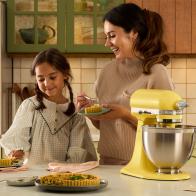











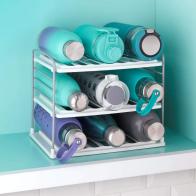



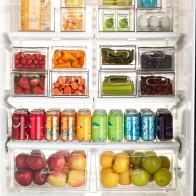




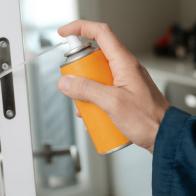



.jpg.rend.hgtvcom.196.196.suffix/1738869041672.jpeg)

















.jpg.rend.hgtvcom.231.174.85.suffix/1738869041672.webp)


















